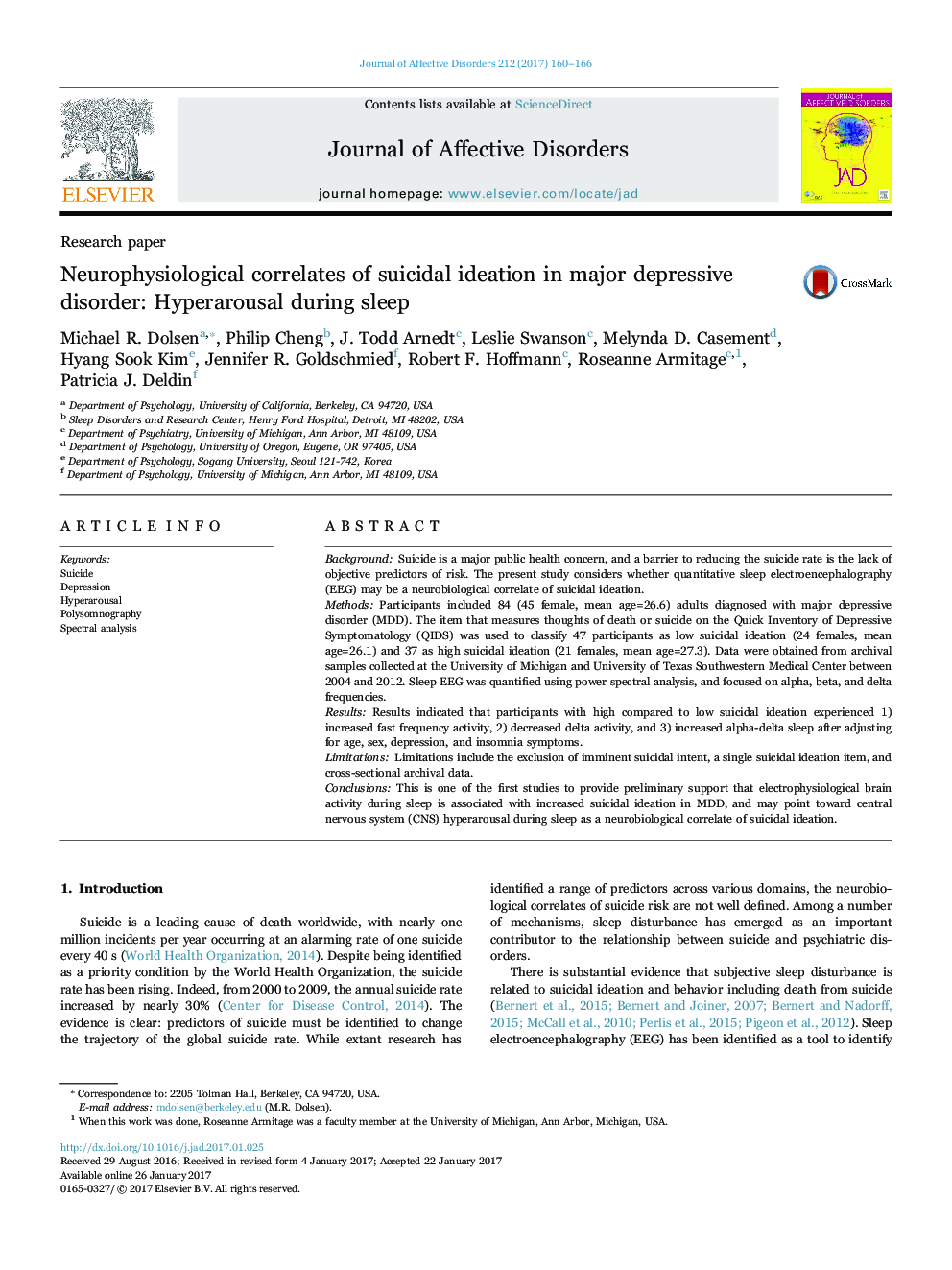| Article ID | Journal | Published Year | Pages | File Type |
|---|---|---|---|---|
| 5722437 | Journal of Affective Disorders | 2017 | 7 Pages |
â¢Sleep EEG was examined in individuals with depression and suicidal ideation.â¢Participants with high suicidal ideation had increased fast frequency activity.â¢Participants with high suicidal ideation experienced decreased delta activity.â¢Participants with high suicidal ideation experienced increased alpha-delta sleep.â¢Hyperarousal during sleep may be a neurobiological correlate of suicidal ideation.
BackgroundSuicide is a major public health concern, and a barrier to reducing the suicide rate is the lack of objective predictors of risk. The present study considers whether quantitative sleep electroencephalography (EEG) may be a neurobiological correlate of suicidal ideation.MethodsParticipants included 84 (45 female, mean age=26.6) adults diagnosed with major depressive disorder (MDD). The item that measures thoughts of death or suicide on the Quick Inventory of Depressive Symptomatology (QIDS) was used to classify 47 participants as low suicidal ideation (24 females, mean age=26.1) and 37 as high suicidal ideation (21 females, mean age=27.3). Data were obtained from archival samples collected at the University of Michigan and University of Texas Southwestern Medical Center between 2004 and 2012. Sleep EEG was quantified using power spectral analysis, and focused on alpha, beta, and delta frequencies.ResultsResults indicated that participants with high compared to low suicidal ideation experienced 1) increased fast frequency activity, 2) decreased delta activity, and 3) increased alpha-delta sleep after adjusting for age, sex, depression, and insomnia symptoms.LimitationsLimitations include the exclusion of imminent suicidal intent, a single suicidal ideation item, and cross-sectional archival data.ConclusionsThis is one of the first studies to provide preliminary support that electrophysiological brain activity during sleep is associated with increased suicidal ideation in MDD, and may point toward central nervous system (CNS) hyperarousal during sleep as a neurobiological correlate of suicidal ideation.
